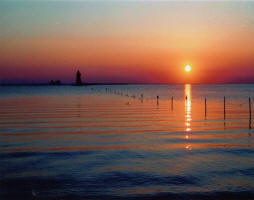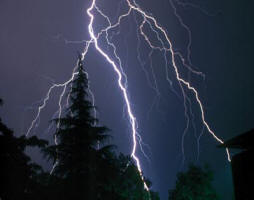 A war of water: Environmental problems in Israel and the Palestinian territories can't wait for the resumption of peace talks
A war of water: Environmental problems in Israel and the Palestinian territories can't wait for the resumption of peace talks
The water spouts from a broken pipe, forming a perfect circle before it is dispersed by the wind and falls on the breaking waves of the Mediterranean sea.
It looks like a fountain, but the pipe that runs from the town of Rafah to the sea by Gaza's border with Egypt contains raw sewage. It enters the sea by the Swedish Village, so-called because it was built by Swedish UN soldiers in the 1960s. In the overcrowded village it is impossible to escape the smell of sewage.
The discharge is one of at least a dozen which pollutes the sea off Gaza. The worst is Wadi Gaza, where a steady flow of raw sewage blackens the sea for kilometres. The currents in the eastern Mediterranean move northwards, bringing sand from the Nile delta and sewage traces from Gaza to the beaches of Israel.
Gaza's sewage problem is just one of several environmental issues which affect both Palestinians and Israelis. Friday 5 June was World Environment Day, and it is appropriate to take a moment to survey the environmental damage around us and ask what can be done to prevent it.
The river Jordan, which once nourished the Jordan valley and some of the world's oldest towns is a salty and polluted trickle. Before it was dammed, the river's flow was 20 times greater. Downstream, the Dead Sea recedes by a metre every year. In 20 years, it has lost a third of its surface area. One of the major sources of water flowing into the Dead Sea is the Kidron river or Wadi Nara, which brings raw sewage from Jerusalem and Bethlehem.
Some Israeli beaches are regularly closed by environmental officials, mainly because of deficiencies in Israel's sewage network. However, one cannot discount the human waste which travels from the West Bank via rivers such as the Soreq, Lakhish, Hadera and Alexander. According to Israel's Ministry of Environment, 58 million cubic metres of untreated sewage is dumped in the West Bank by Palestinians and settlers each year. This goes into the ground, where it pollutes aquifers, and into streams which ultimately reach the sea.
The effect of global climate change on the Israel and the occupied Palestinian territory is not yet clear. The region has suffered five years of drought and some forecasters estimate that temperatures will rise and rainfall will decrease. It will become much harder to make the desert bloom in such conditions.
Environmental issues affect everyone, yet here they are an unnecessary hostage of the conflict. It would take a small mental shift to remove environmental issues from the "pending peace process" tray and upgrade them to urgent. These problems will not go away or wait until the resumption of serious peace talks.
There are environmentalists on both sides of the Green Line who are committed to solving these problems but are frustrated by their colleagues in government who see environmental issues as minor in the grand scheme of the Israeli-Palestinian conflict.
Expensive plans to avert disaster are being investigated and implemented. Israel is building a further three desalination plants in addition to the two it already has. A feasibility study is underway into transporting water from the Red Sea into the Dead Sea, via pumps, desalination plants and electricity-generating turbines. Both schemes rely on using huge amounts of energy to achieve their aims, which may affect global warming.
But it is the simple solutions that appear to be the most difficult, such as supplying water to communities and providing basic sewage treatment. In 1995 the Joint Water Committee was set up to manage water resources in the occupied Palestinian territory as part of the Oslo accords. It was an interim committee which was meant to operate by consensus. Fourteen years later, the committee does not seem temporary and consensus appears to have broken down. As a result, water networks and sewage treatment plants in the West Bank have not been built.
The World Bank states that Palestinians use one sixth the amount of water that Israelis use per capita. Scarcity forces some Palestinians to monopolise the small amounts available and others to drill unlicensed wells, putting further pressure on the aquifer.
The blockade on Gaza is also taking its environmental toll on Gaza and southern Israel. For almost two years, supplies necessary to rehabilitate and upgrade Gaza's sewage networks and treatment plants have been banned. Attempts by the international community and the Palestinian Authority to persuade the military authorities to treat the discharge of sewage into the sea from Gaza as an important humanitarian issue have so far failed.
Sewage pumped into the sea is an indefensible waste of water. If treated, it could be used to recharge the aquifers and prevent their destruction. The underground water from Gaza comes from the coastal aquifer which stretches along the Mediterranean. Much of it has been contaminated by sea water intrusion, a problem likely to deteriorate.
UNDP and other members of the international community are trying to carry out projects to improve water and sewage management in the West Bank and Gaza which will improve the environment for everyone. Among other projects, we hope to connect hundreds of Palestinian homes to a sewage network which will link to a treatment plant in Israel and we have started planning the construction of a sewage treatment plant in Khan Yunis in the Gaza Strip.
Just as environmental damage ultimately affects everyone, the solution is similarly universal. The theme of World Environment Day is "Your planet needs you". Individuals must save water and energy and governments must reach agreements whether at the international climate change conference in Copenhagen in December or at the local level.
Co-ordinated action is possible. Israel has worked efficiently with the international community and the Palestinian Authority to treat avian flu, fearing that an epidemic in Gaza could affect poultry farmers in Israel. The environment urgently needs the same affirmative foresight and vision. Anything less would be irresponsible.
| Contact information |
Jens Touberg-Frandzen, The Guardian
|
|---|---|
| News type | Inbrief |
| File link |
http://www.guardian.co.uk/commentisfree/2009/jun/06/gaza-strip-water-supply?commentpage=1 |
| Source of information | Jens Touberg-Frandzen, The Guardian |
| Subject(s) | AGRICULTURE , ANALYSIS AND TESTS , CHARACTERISTICAL PARAMETERS OF WATERS AND SLUDGES , DRINKING WATER , DRINKING WATER AND SANITATION : COMMON PROCESSES OF PURIFICATION AND TREATMENT , ENERGY , FINANCE-ECONOMY , HYDRAULICS - HYDROLOGY , INFRASTRUCTURES , NATURAL MEDIUM , POLICY-WATER POLICY AND WATER MANAGEMENT , PREVENTION AND NUISANCES POLLUTION , RIGHT , RISKS AND CLIMATOLOGY , SANITATION -STRICT PURIFICATION PROCESSES , SLUDGES , WATER DEMAND , WATER QUALITY |
| Geographical coverage | Palestine, Israel, Jordan |
| News date | 08/06/2009 |
| Working language(s) | ENGLISH |
 you are not logged in
you are not logged in





